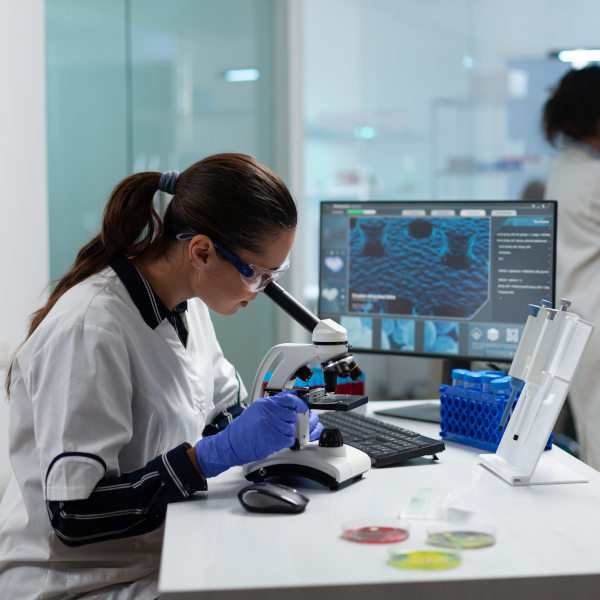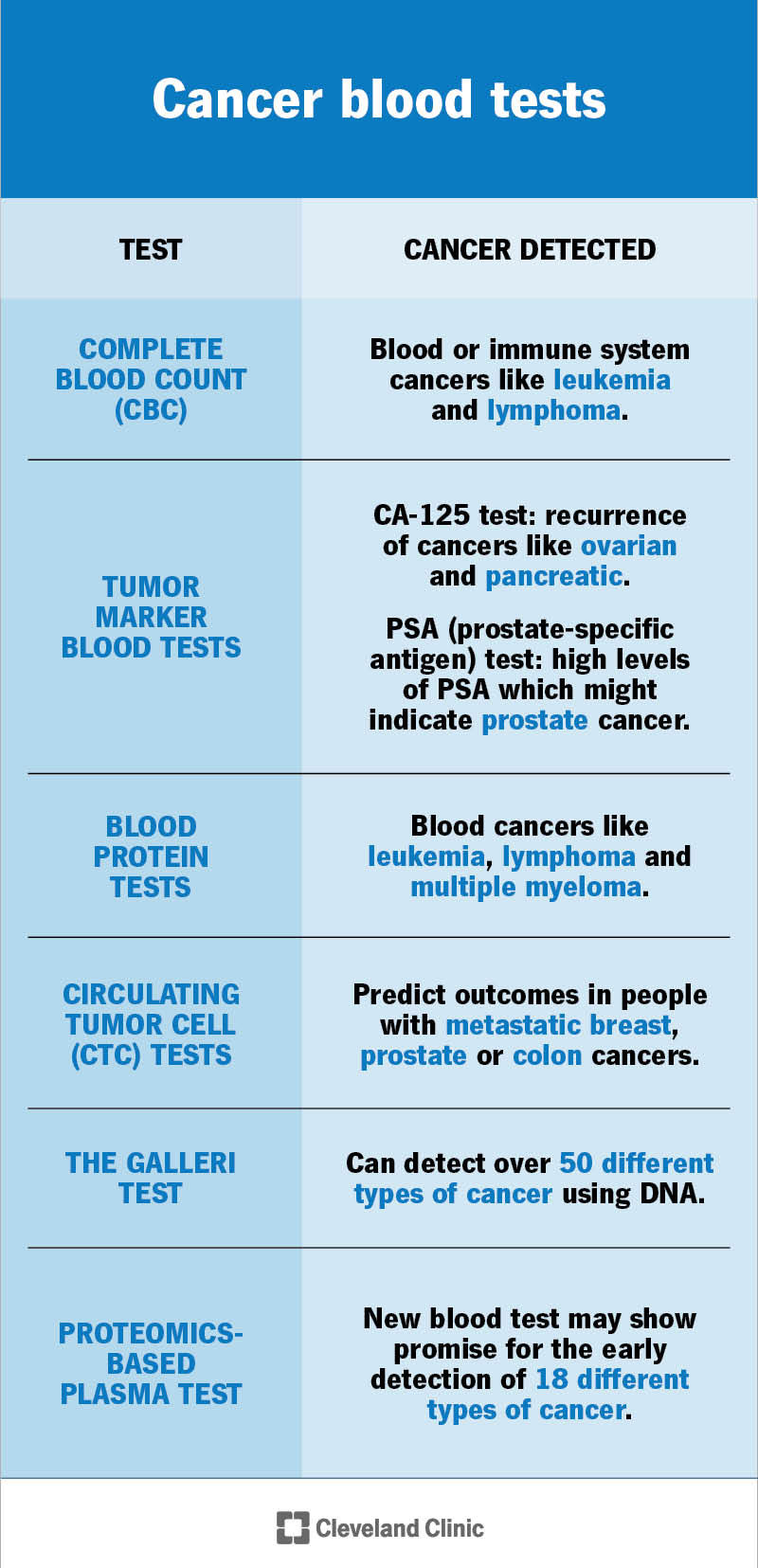Blood Tests can detect cancer earlier than some current methods by identifying specific biomarkers, like circulating tumor DNA (ctDNA), proteins or exosomes, often before symptoms or imaging reveal the disease. However, challenges remain: sensitivity varies by cancer type and spread (higher for advanced stages). Moreover, lack of specificity can lead to false positives (e.g., benign conditions mimicking cancer signals), and not all cancers shed detectable biomarkers early.

Blood tests are one of the many ways that healthcare providers diagnose, stage and manage cancer.
Tests like the Galleri multi-cancer early detection test can screen for multiple cancers by analyzing DNA methylation patterns, detecting cancers as early as stage I in some cases, with sensitivity around 16-40% for early-stage cancers depending on the type.
Liquid biopsies, another approach, detect ctDNA or circulating tumor cells, offering non-invasive detection for cancers like lung, breast, or colorectal, sometimes months before imaging-based methods like CT scans or mammograms, which typically identify later-stage tumors (e.g., stage III-IV).
If conducted every year or every other year, early detection blood test could help more people survive cancer. They have the potential to avert deaths associated with late-stage cancers when used in addition to current guideline-based cancer screening.
How do Blood Tests Compare to Current Detection Methods
Current methods like imaging or tissue biopsies are more definitive but often detect cancer later, with imaging missing tumors smaller than one centimeter and biopsies requiring a known lesion. Blood tests are thus promising for earlier detection, especially in high-risk groups, but they’re not yet a universal replacement due to limitations in sensitivity, specificity, and the need for confirmatory diagnostics.
Compared with standard cancer screening, annual blood testing was associated with 49% fewer late-stage cancer diagnoses and 21% fewer deaths within five years, results show.
Blood testing every other year resulted in 39% fewer late-stage diagnoses and 17% fewer deaths within five years, researchers added.
Types of Blood Tests for Cancer

There are many blood tests for cancer, and you may need more than one and additional confirmatory tests too. Courtesy of the Cleveland Clinic
Healthcare providers categorize cancer blood tests into four main types:
- Complete Blood Count (CBC): A CBC can detect some blood or immune system cancers like leukemia and lymphoma. But it can’t detect solid organ cancers like lung, breast or colon cancers. It can tell your provider how your body responds to treatment and whether the cancer has spread to your bone marrow.
- Tumor Marker Blood Tests: These tests identify certain chemicals released into your bloodstream every day. High levels of these chemicals in the blood can be a sign of cancer. The CA-125 blood test is one common tumor marker test commonly used to plan treatment and check for the recurrence of certain cancers (like ovarian and pancreatic). The PSA (prostate-specific antigen) test is a tumor marker test that checks for high levels of PSA in your blood. PSA is a protein your prostate makes. Elevated levels might indicate prostate cancer.
- Blood Protein Tests: These tests check for abnormal protein levels in your blood. High protein levels could point to certain types of cancer (mostly blood cancers like leukemia, lymphoma and multiple myeloma). Some tests, like a comprehensive metabolic panel (CMP), include a total protein test by default, which can also provide this information.
- Circulating Tumor Cell Tests (CTC tests): This is a type of liquid biopsy that checks your blood for cancer. It detects tiny pieces of tumors that break off and circulate in your bloodstream. Providers use this cancer blood test to predict outcomes in people with metastatic breast, prostate or colon cancers. A low level of CTCs, or undetectable CTCs, in your blood, indicates a favorable outcome. Too many CTCs in your blood are a sign of an unfavorable outcome or might indicate a need for additional treatment.
What Other Tests Will I Need for Diagnosis?
Blood tests usually aren’t enough for a cancer diagnosis. You’ll almost certainly need additional tests, which may include:
- Biopsy: This involves taking a small sample of tissue (from an organ or bone marrow) and sending it to a lab for analysis.
- Imaging Tests: These could include X-rays, CT (computed tomography) scans, MRI (magnetic resonance imaging) scans or PET (positron emission tomography) scans. They can help your provider locate and stage any tumors.
- Specialized Tests: Sometimes, other specialized tests are required. For example, you’ll need a mammogram to help diagnose breast cancer or a Pap smear to detect cervical cancer.
Does Early Cancer Show in Blood Work?
Most cancers don’t show up in routine blood work. But there are specialized blood tests that can detect early-stage cancers in some people:
The Galleri Test: This specific type of blood test can detect over 50 different types of cancer. It uses DNA sequencing to find unique patterns, which may tell your provider whether you have cancer and where it started.
If you take the Galleri test, you can have two possible results:
- 1) No cancer signal detected means there’s no cancer DNA detected in your bloodstream.
- 2) A cancer signal detected suggests you may have cancer.
If a cancer signal is detected, the Galleri test is able to identify which organ system the cancer is likely coming from with about 90% accuracy.
Proteomics-Based Plasma Test: One 2024 research study found that a new blood test may show promise for the early detection of 18 different types of cancer.
Proteomics is the study of cell proteins and how they work. In a study of 440 individuals, the test detected 93% of Stage I cancers in males and 84% of Stage I cancers in females. Researchers need to run more studies, but this blood test could become a standard for cancer screening.
Cosmetic Plastic Surgery Consultations
Plastic Surgery may not be the first thing one thinks of when researching cancer; however, we do get involved on the reconstructive side of treatment. Hopefully, as blood test become available that can find tumors earlier, we can perform simpler reconstructive plastic surgery procedures, or ideally, none at all.
Whether you are considering Cosmetic Plastic Surgery or need reconstructive surgery, be certain to consult with an experienced and Board Certified Plastic Surgeon.
Previous Post Next Post